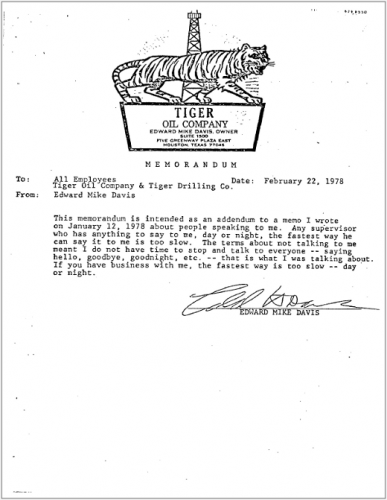What If The Hand Loom Weavers Were Children of the Nobility?
Gato Malo had a piece the other day that fit in with some of my recent thinking on AI and changes in the workforce. Most of hispost is about how the market values and pays for labor, and I mostly skimmed it because this way of thinking about value is as natural as breathing to me**.
But it was something he wrote near the end of the article that caught my attention (the lack of caps is gato's long-time style)
over the next 5 years, doctors, lawyers, engineers, accountants, and money managers are all going to come into crosshairs and see industries and payscales demolished. there will be a fearsome rear guard fight from guild systems (the bar, medical boards, CPA association etc) but it’s doomed to fail as they are just more unions trying to keep wages too high and prevent progress and increased access. taking humans out of medicine and breaking the cost spiral is the only possible way for the west to survive the already arriving wave of unfunded entitlement, and in the end, needs must will out and fiscal reality will trump guild control.
this is actually going to be amazing for consumers, a drop in price and expansion of availability in professional services that will rival the gains of the industrial revolution. once, making a pair of shoes consumed so many skilled resources as to cost months of wages. a good shirt was so valuable that people willed them to their children. now shirts are so cheap as to constitute less than an hour of most people’s labor. but the cost of “healthcare” has not worked like this despite being a technology product. law and accounting-services remain domains priced like rare gems.
they are about to be disrupted.
many are lamenting this forthcoming employment apocalypse for the over-educated, but we really should not. it will be amazing for the consumer and just like the tractor and the plow and the combine it will allow all manner of new and better innovation increasing standards of living through productivity gains as resources free up and move to profitable application.
A couple of weeks ago, for our anniversary, my wife took me to a very nice restaurant in a 5-star resort somewhere around Newport Beach in CA. At the table of 8 next to us were apparently several generations and branches of a single family who talked fairly loudly and included several people who mentioned Yale two or three or twenty times during the evening. It was a small random sample from the closest thing the US has to a governing nobility, the Ivy-League-educated elite. And much of the discussion through the evening seemed to focus on the family's fears of AI and its threats to their children's future job prospects.
I agree with Gato that AI has a huge potential to disrupt current work patterns, in the same way that the industrial revolution did. The 19th century disruptions were severe, and many people suffered as their experience and skill set no longer matched the new economy. But eventually everyone, from the poorest to the rich, were better off for letting the industrial revolution run its course.
But in the 19th century, the disrupted were essentially powerless. What happens this time around, though, when the disrupted are the ruling elite themselves? These potentially disrupted professions include lawyers and doctors who already have shown themselves very willing to organize to block innovation, squash competition, and protect their high pay. Just look at the history of the attempts by Congress to reduce Medicare reimbursements to doctors. And that was minor compared to the potential AI disruption. Let me give you another example of the powerful resisting a technological change that should have disrupted their businesses.
When TV first was being rolled out, the industry coalesced around a network of local broadcast stations, many of whom became affiliates of a network like NBC or CBS. Why this model? Mainly it was driven by technology -- the farthest a TV signal could reasonably be broadcast was about 50-75 miles. Thus everyone by necessity got their TV through three or four TV stations in their metropolitan area, each its own small business.
Now fast forward to today. There are multiple ways to broadcast a TV signal nationwide -- there are several satellite options and many streaming internet approaches. So now when we watch DirecTV or Youtube TV, we just watch the national NBC or ABC feed, right? Nope. Federal law requires that whatever service you use MUST serve up NBC, for example, via the local affiliate. That is why your streaming TV service harasses you when you travel, because it is worried about violating the law by showing you the Phoenix CBS affiliate when you are staying overnight in Atlanta (gasp).
This is hugely costly. In order to be able to provide NBC among its stations, Youtube TV must gather the feeds from 235 different stations. In the Internet streaming era this is costly but in the satellite era it was insane. DirecTV, with its limited bandwidth, had to simultaneously broadcast 235 stations, most showing identical content, just to legally provide you with NBC. So why this crazy, expensive, insane effort? I am sure you have guessed -- pound for pound local TV stations are among the most powerful lobbyists in the country. First, they have money and a massive incentive to defend their local geographic monopoly -- Car dealers and alcohol distributors are much the same, which is why every potential innovation is resisted in those markets. But TV stations have one extra card to play -- nearly every Congressman in the House likely depends on the three or four TV stations in one major metropolitan area for a huge part of their publicity and coverage. No politician is going to screw with that. At the end of the day, local stations did not get disrupted, they actually became more valuable with this government-enforced distribution of their product.
This is a small example of the fight that is coming in AI. Congressmen will couch their arguments in fear-charged terminology as if their real fear is some Terminator-like AI apocalypse. But the real concern will be from the influential elite who are being disrupted. What would have happed to the Industrial Revolution if the hand-loom weavers were the children of the nobility? Would the government have allowed the revolution to proceed? We are about to find out.
** footnote: The only thing I would add to Gato's discussion of labor and value is that I think a lot of our conversations are hamstrung by the multiple meanings of "value" and "worth". Gato correctly makes the point that one's own self-worth and how one values his or her own labor has nothing to do with how the market pays for one's labor. But the reverse is true too -- how the market pays for your labor should not necessarily have any bearing on how one values oneself or one's labor. I saw a beautiful production by the ABT of the ballet Giselle last night. Most of the ballerinas in the show don't get paid as much as a good plumber, but their labor is worthy and beautiful and -- despite the low pay -- many professional ballerinas love their (often short) life as a dancer. Most professional athletes before perhaps 1960 were the same, doing the thing they loved and finding fulfillment in excellence even when the market did not see fit to pay them much for what they did.






